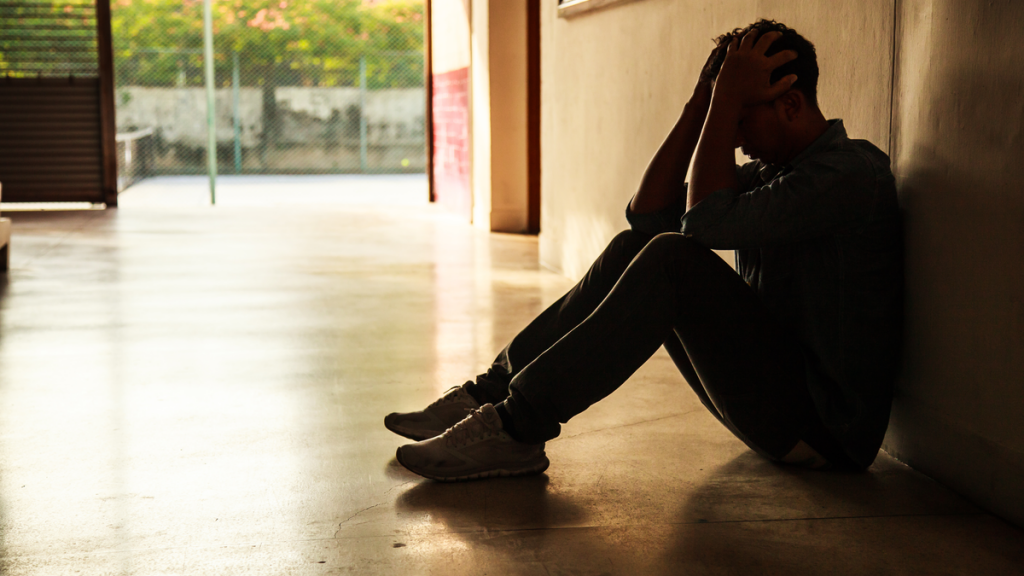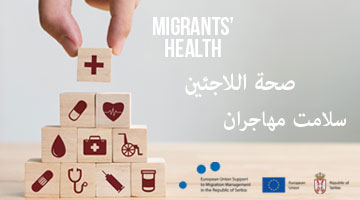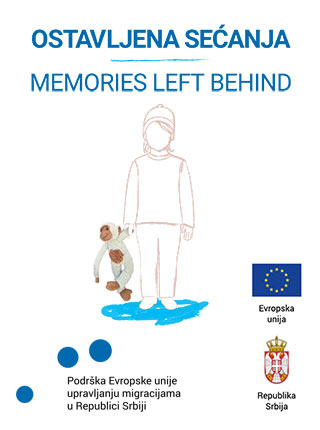2 September 2019
Mental health – how to cope with difficulties

Health status of individuals depends equally on physical and mental health. If an individual is facing the challenges of physical health, this can have negative effect on his/her mental health. Also, if a person’s mental health is impaired, this can also damage his/her physical health. In order to preserve health of individuals and their quality of life, it is equally important to take care of both physical and mental health.
Individuals with preserved mental health are emotionally stable, they can cope with stressful life circumstances, they can work, , they can establish healthy relations with other persons and contribute to community.
Numerous factors contribute to the impairment of mental health, hence it has been demonstrated that one in four persons can be affected by difficulties in mental health domain during their life time. Mental health is affected by internal person-specific factors such as personality traits and biological predisposition, and external factors such as the surrounding, living conditions, and exposure to traumatic experiences.
Mental health while being in exile
In exile, people are exposed to numerous external factors that can contribute to mental health impairing, such as difficult living conditions and stressful life experiences. Traumatic experiences and living conditions in the country of origin, abandoning the country of origin, difficulties en route and in setting up new life in another country, as well as the lack of support of family and friends make refugees particularly vulnerable and places them under risk of facing difficulties in domain of mental health.
It has been demonstrated that more than 80% of refugees staying in Serbia are psychically jeopardized. This piece of data indicates that difficulties in domain of mental health are widely spread, but its does not indicate the presence of mental health disorders. Difficulties in mental health domain can be an expected response to stressful and difficult life circumstances and experiences and can be overcome with adequate and timely support. Recognizing the signs of deteriorating mental health in oneself and others is the first step in seeking and getting necessary support.
How to recognize difficulties in mental health domain in oneself and others
The most common signs of impaired mental health in refugees are the symptoms of depression, anxiety and post-traumatic stress disorder that will be illustrated with examples later in this this text.
A person can experience the symptoms of depression in the form of lowered mood, reduced interest in everyday activities, lack of energy, increased fatigue, changes in appetite, loss of self-esteem, and feeling of hopelessness, guilt and emptiness. Difficulties can be pronounced to the extent of leading to self-harm and suicidal thoughts and intentions.
“In the morning, I find it very hard to get out of bed. I don’t fell like doing anything, not even the activities I used to enjoy before. I am tired during the whole day and I don’t feel hunger. Everything seems pointless and as if there was no hope something would change. I feel completely empty. Sometimes I think it would be best if I never woke up again.”
“I feel week and as there is nothing I can do properly, not even take care of my family. I cry all day, even when I do not have the reason for it.”
Also, persons can experience the symptoms of anxiety in the form of physical symptoms such as difficult breathing, sweating, nausea, vertigo, chest pain; persons can experience psychic symptoms such as nervousness, a whirl of thoughts and the feeling of fear.
“Thoughts constantly swirl in my head and I cannot get rid of them. Because of them I cannot concentrate, I am nervous and I can’t stay in one place. It also happens, from this pressure, that my heart starts to beat so quickly that I can’t breed and I feel as if I were going to choke.”
Likewise, symptoms of post-traumatic stress disorder might appear, such as unwanted and repetitive thoughts on traumatic events, tendency to avoid places and situations that remind the person of traumatic events and agitated reactions on encountering them, problems sleeping, feelings of guilt, anger, and shame, increased caution, inability to remember and precise presenting of certain segments of traumatic experience.
“I spend the greatest part of the day in my room. People around me and their stories keep reminding me of the past and previous experiences, and that makes feel terrified and unsafe, as if something can happen to me at any moment. I feel the worst at night. I sleep poorly and I am often woken up by night mares in which I keep re-living everything that has happened to me.”
Who to see for help
Difficulties in mental health domain are not a sign of weakness nor of “madness”, they are one of the usual reactions to unusual life circumstances. It is important to mention that every individual can experience some of the mentioned difficulties during life time.
Should you recognize the signs of impaired mental health in yourself or other persons, it is crucial to seek professional help in order to avoid further deterioration of health. Care for mental health is a constituent part of the care for the health of individuals. In the same way you see a dentist when you have a toothache, you should see a psychologist or a psychiatrist to seek help in the domain of mental health.
Psychological support is available in all asylum and acceptance centers for refugees in Serbia.
- If you are accommodated in one of the centers, seek help from the medical team at the center and they will refer you to a psychologist.
- If you are accommodated in some of the accommodation facilities for minors, see educators or care takers that will contact the organization providing the services of psychological support in your vicinity.
- If you are staying in private accommodation, address some of the organization providing this type of services in the town or city at which you are staying. On the territory of the city of Belgrade, you can contact the organization PIN – Psychosocial Innovation Network (www.psychosocialinnovation.net).
The experience has shown that refugees referred for psychological support services or that have sought this type of support, recognize psychological support as an important and significant resource in coping with problems and recommend this sort of support to persons close to them.
Author: Irena Stojadinović, MSc in psychology
Irena Stojadinović graduated from the Faculty of Philosophy of Belgrade university and got her masters degree at the same faculty. Since 2017 she has been working as a psychologist at a civil society organization PIN (Psychosocial Innovation Network) on the projects providing psychological and psychosocial support to refugees and advocating system changes in the filed of mental health in communities. She is the member of the Board of Promotion and Prevention, as well as of the Scientific Committee on Crisis, Disaster and Trauma of the European Federation of Psychologists’ Associations























